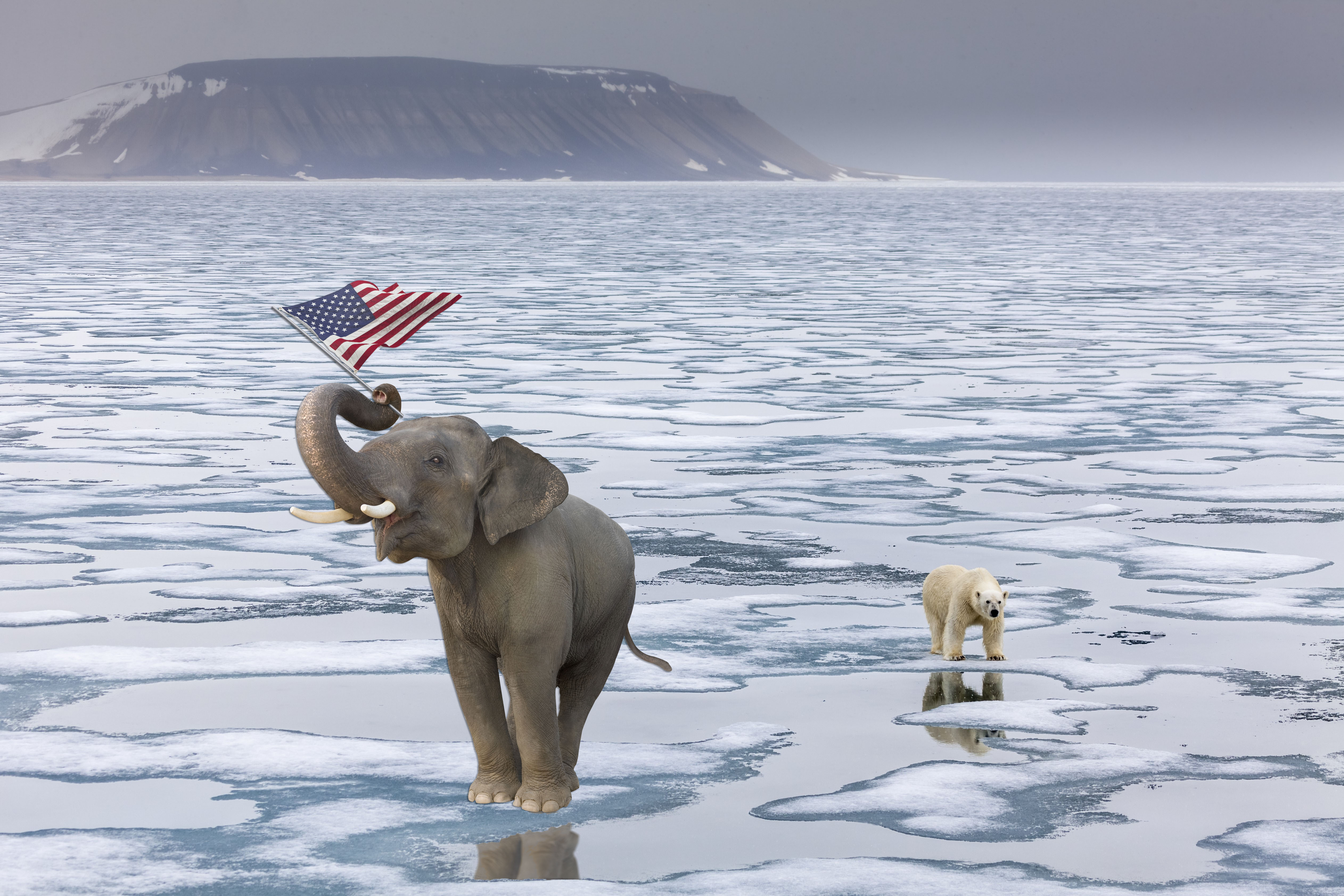Republicans want to fight climate change, too
The Democrats aren't the only game in town


This year is quickly shaping up to be a banner year for action on climate change. And just in time. Last year was the hottest year on record. We also logged the highest global carbon emissions ever. This resulted in a slew of extreme weather events, such as California’s drought, the region's worst in 1,200 years.
In response, from China to Chattanooga, there is new activity on the climate front. Private sector leaders are recognizing the financial risks of global warming. Elected officials are protecting constituents from the fallout, including agricultural crop losses, security threats, infrastructure damage, and other economic costs.
Crucially, the U.S. Congress could surprise many by taking action on climate change. While many doubt that a GOP-controlled Congress will do much on the issue, the truth is that a climate-friendly Congress may emerge from the partisan fray. Here’s how.
The Week
Escape your echo chamber. Get the facts behind the news, plus analysis from multiple perspectives.

Sign up for The Week's Free Newsletters
From our morning news briefing to a weekly Good News Newsletter, get the best of The Week delivered directly to your inbox.
From our morning news briefing to a weekly Good News Newsletter, get the best of The Week delivered directly to your inbox.
There is growing bipartisanship on this issue. After all, preserving and conserving the environment is a conservative value as well as a liberal one. In fact, new data from the Yale Project on Climate Change Communication shows that the majority of Republicans, like most Americans, recognize the threat of climate change. Only a minority are in denial. Further, a majority of Republicans support regulating CO2 as a pollutant, as well as tax rebates for energy efficient vehicles and solar panel purchases.
It’s worth remembering the days when Newt Gingrich and Nancy Pelosi joined forces to take on climate change. This wasn’t so long ago! Nor was the time when Republican conservatives, such as Rep. Roscoe Bartlett of Maryland, weighed in on the importance of Earth Day and the findings of the U.N. Intergovernmental Panel on Climate Change.
Fast-forward to today’s 114th Congress. Republicans are leveraging conservative concepts to promote environmental conservation.
The leadership shown by New York Rep. Chris Gibson (whose district was recently hit by the worst floods in 500 years) and Louisiana Rep. Garrett Graves (whose district may one day be under water) is just one example of the Republican potential. Even New Jersey Rep. Chris Smith has pointed out, "Climate change is a global challenge that must be addressed with a global solution."
A free daily email with the biggest news stories of the day – and the best features from TheWeek.com
It’s important to understand that conservative action on this front isn’t always categorized under the traditional rubric of climate change. For example, Reps. Tom Cole (Okla.), Charles Dent (Pa.), Don Young (Alaska), and Michael Fitzpatrick (Pa.) all co-sponsored Democratic Rep. Matt Cartwright’s (Pa.) Preparedness and Risk Management for Extreme Weather Patterns Assuring Resilience (PREPARE) Act, legislation that helps the federal government plan and prepare for the risks associated with extreme weather incidents.
These House Republicans know full well the connection between extreme weather and climate change and are keen to do something about it. They’re not alone. Consider Republican Rep. David Joyce’s (Ohio) continued effort to protect the Great Lakes, authorizing $300 million each year for the next five years for the Great Lakes Restoration Initiative. Joyce understands fragile ecosystems and habitats and the importance of protecting existing fresh water supplies — all of which will be imperiled by a warming climate.
The chances for Senate bipartisanship are also promising. Republican Sen. Susan Collins (Maine) and Democratic Sen. Chris Murphy (Conn.) have led on a bipartisan bill to reduce emissions from short-lived climate pollutants, known as super pollutants, which account for 40 percent of global warming. This is a big deal and would make a big dent in greenhouse gas emissions.
Meanwhile, Republican Sen. Rob Portman (Ohio) is helping lead a bipartisan effort with Democratic Sen. Jeanne Shaheen (N.H.) to improve energy efficiency across America — an effort Republican Sen. Lisa Murkowski (Alaska) is also supporting. This, too, would substantially reduce America’s emissions footprint.
All of these early steps offer solid foundations for Congress to move forward on climate legislation. The key to ensuring that any action is politically palatable is to focus on more urgent priorities — responding to disasters, tracking storms, cutting energy costs.
Climate change is increasingly being felt in the here and now, and the majority of the American people want their elected officials to do something about it — regardless of party.
Michael Shank, PhD, is the director of media strategy at Climate Nexus and adjunct faculty at George Mason University's School for Conflict Analysis and Resolution. Shank is a senior fellow at the JustJobs Network and a former congressional staffer.
-
 Striking homes with indoor pools
Striking homes with indoor poolsFeature Featuring a Queen Anne mansion near Chicago and mid-century modern masterpiece in Washington
-
 Why are federal and local authorities feuding over investigating ICE?
Why are federal and local authorities feuding over investigating ICE?TODAY’S BIG QUESTION Minneapolis has become ground zero for a growing battle over jurisdictional authority
-
 ‘Even those in the United States legally are targets’
‘Even those in the United States legally are targets’Instant Opinion Opinion, comment and editorials of the day
-
 The billionaires’ wealth tax: a catastrophe for California?
The billionaires’ wealth tax: a catastrophe for California?Talking Point Peter Thiel and Larry Page preparing to change state residency
-
 Bari Weiss’ ‘60 Minutes’ scandal is about more than one report
Bari Weiss’ ‘60 Minutes’ scandal is about more than one reportIN THE SPOTLIGHT By blocking an approved segment on a controversial prison holding US deportees in El Salvador, the editor-in-chief of CBS News has become the main story
-
 Has Zohran Mamdani shown the Democrats how to win again?
Has Zohran Mamdani shown the Democrats how to win again?Today’s Big Question New York City mayoral election touted as victory for left-wing populists but moderate centrist wins elsewhere present more complex path for Democratic Party
-
 Millions turn out for anti-Trump ‘No Kings’ rallies
Millions turn out for anti-Trump ‘No Kings’ ralliesSpeed Read An estimated 7 million people participated, 2 million more than at the first ‘No Kings’ protest in June
-
 Ghislaine Maxwell: angling for a Trump pardon
Ghislaine Maxwell: angling for a Trump pardonTalking Point Convicted sex trafficker's testimony could shed new light on president's links to Jeffrey Epstein
-
 The last words and final moments of 40 presidents
The last words and final moments of 40 presidentsThe Explainer Some are eloquent quotes worthy of the holders of the highest office in the nation, and others... aren't
-
 The JFK files: the truth at last?
The JFK files: the truth at last?In The Spotlight More than 64,000 previously classified documents relating the 1963 assassination of John F. Kennedy have been released by the Trump administration
-
 'Seriously, not literally': how should the world take Donald Trump?
'Seriously, not literally': how should the world take Donald Trump?Today's big question White House rhetoric and reality look likely to become increasingly blurred
